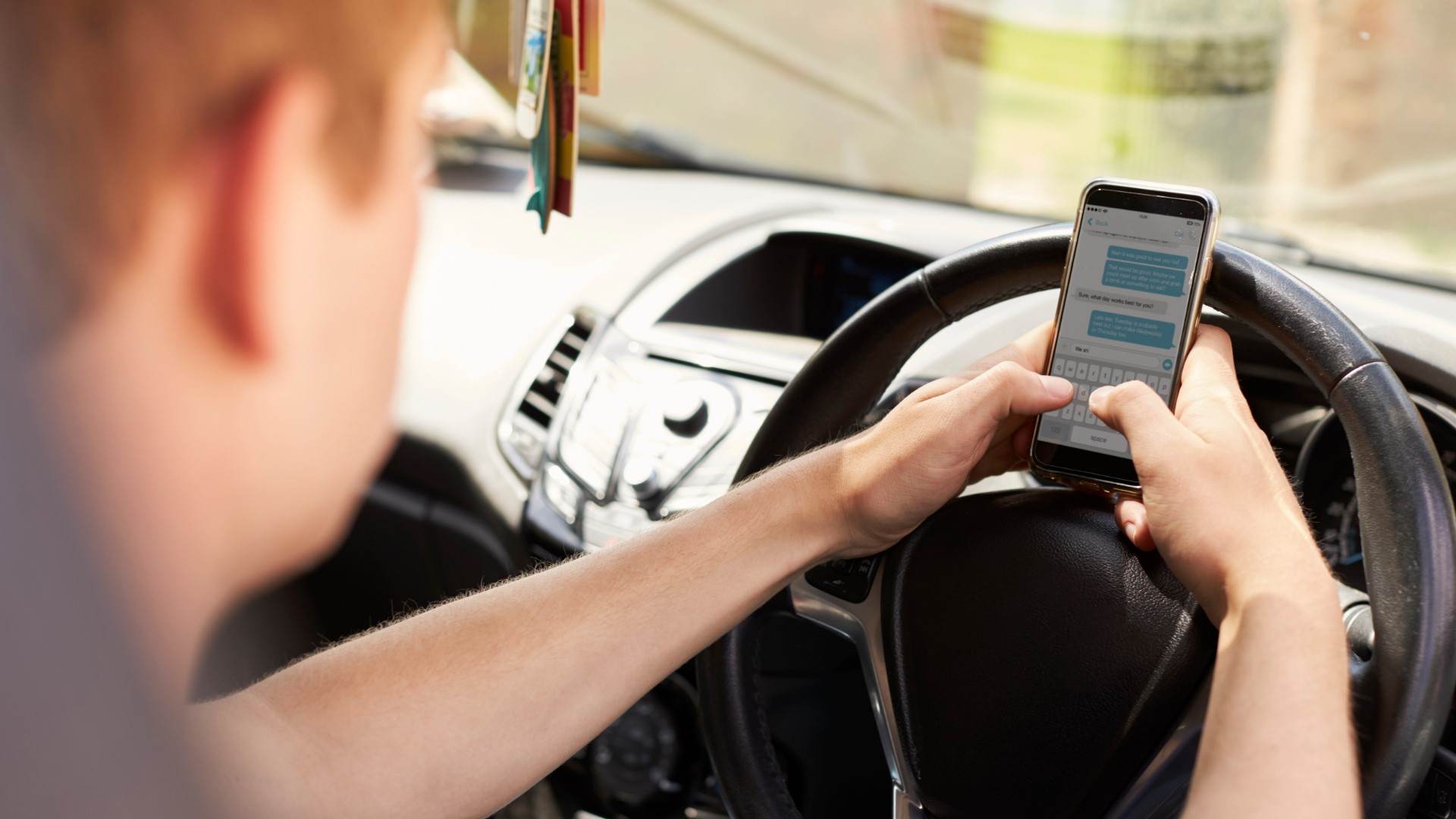ATLANTA — Five years after Georgia’s “hands-free” cell phone restrictions for drivers took effect, the latest numbers available show that fatal traffic crashes across the state caused by distracted drivers are fewer than before the law took effect.
Robert Hydrick with the Georgia Governor’s Office of Highway Safety said Monday that the law is the reason.
“The law is saving lives,” Hydrick said. “That is a really encouraging sign. It’s not good news because we still have people dying in crashes caused by distracted driving. Yes, there are fewer fatalities than before the law, but our goal is to get to zero.”
Hydrick said local police and the Georgia State Patrol have been enforcing the law aggressively.
According to research compiled by his office, in 2017, the year before the current law took effect, 11,505 people were convicted in Georgia of distracted driving.
In 2021, after the stricter, hands-free phone law took effect—and 2021 is the latest year, so far, for which data are available—there were 43,846 distracted driving convictions, nearly four times more than there were in 2017, mostly due to people simply driving with cell phones in their hands, which the stricter law bans.
As a result of the law and the enforcement, Hydrick said, in 2021, 3.1% of all traffic deaths in the state were caused by distracted drivers—most of whom were using cell phones—compared with 5.3% in 2017.
Hydrick said it’s clear that many drivers continue to ignore the law and get away with it.
Kelli and Terron Phillips of Atlanta said Monday that, to them, drivers appear to be more distracted by their phones than they were five years ago.
“I feel like drivers are more on their phones, trying to change the music on their phones, or just looking down at them,” Kelli said. “I’ve seen people on FaceTime, so it looks like they’re doing video calls. So, I think it’s even worse than just having it (in your hand to your ear), people are more invested in the phone.”
“Nobody thinks that this is going to hurt somebody,” Hydrick said. “But it does, every day.”
Terron Phillips thinks the state should look at possibly making the law stricter than it is, and ban drivers from using phones at all, even in the hands-free phone-holders.
“They try to do their hands-free thing and I just see them pushing on the keys,” Terron said, saying drivers are looking at the phone in the holder instead of on the road. “They’re focusing, still, on the phone, so I don’t think there’s a difference between holding it, and having it as hands-free and still using it.”
As it is, the state is working to compile even more recent data on the impact of the hands-free law five years after it was enacted.

